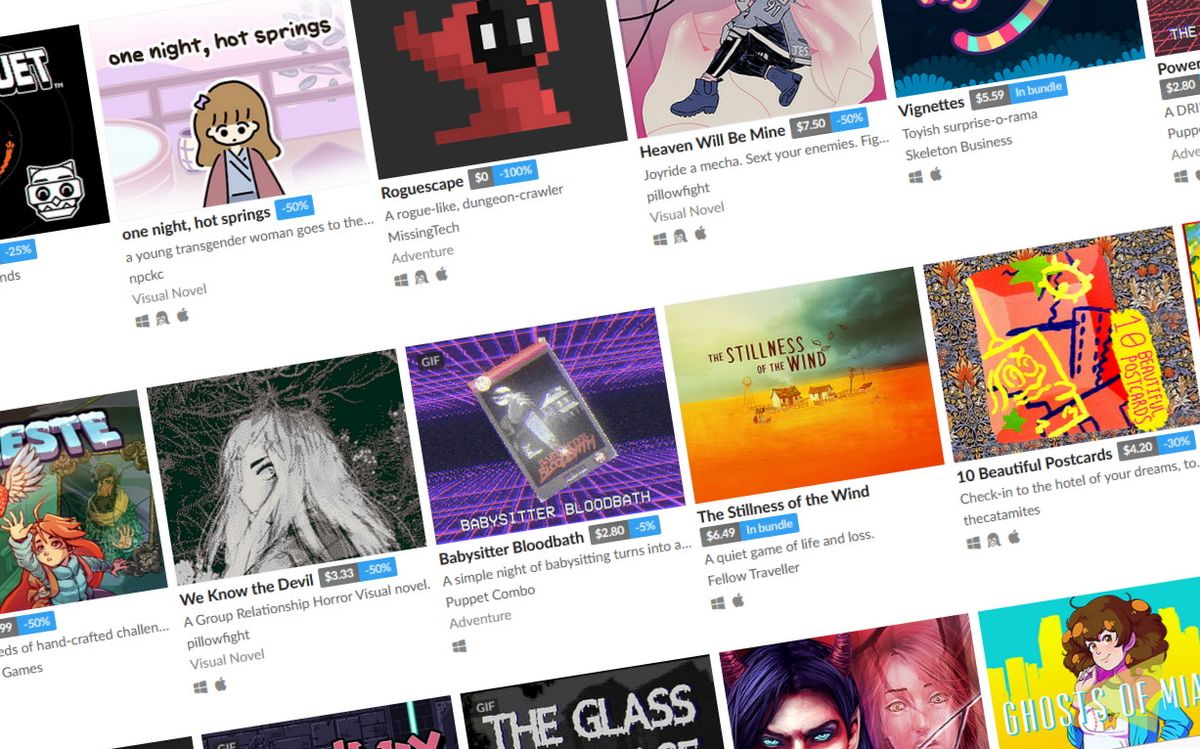Never one to mince words, indie game storefront itch.io has come out strongly against NFTs in a Twitter thread that begins, “A few have asked about our stance on NFTs: NFTs are a scam. If you think they are legitimately useful for anything other than the exploitation of creators, financial scams, and the destruction of the planet the[n] we ask that [you] please reevaluate your life choices.”
Also f̸̗̎ú̴̩c̷̖͌ḳ̵̀ any company that says they support creators and also endorses NFTs in any way. They only care about their own profit and the opportunity for wealth above anyone else.Especially given the now easily available discourse concerning the problems of NFTs.February 6, 2022
See more
This stands in stark contrast to the position of Ubisoft, which announced it would begin selling NFTs in games beginning with Ghost Recon: Breakpoint as part of a scheme called Ubisoft Quartz. You’ll soon be able to buy game-related NFTs from GameStop’s new NFT marketplace as well.
Other videogame NFT plans have been announced but then walked back with amusing haste. Team17 canceled plans for Worms NFTs, the Stalker 2 NFT auction was quickly canceled, Discord has already given up on NFT and cryptocurrency integration, and voice actor Troy Baker canceled his partnership with an NFT firm who took audio from a non-commercial text-to-speech synthesizer without permission.
You may well point out that itch.io has a section for games tagged NFT, and while some of them are obvious parodies like NFT Clicker, in which you click on a Bored Ape or similar ugly cartoon animal and watch numbers go up, others are not. #Monopoly.NFT, for instance, uses a cryptocurrency called $MPLY for in-game transactions and will supposedly let you mint your character as an NFT in the future. (Which is weird when you think about the origins of Monopoly as a critique of land-grabbing capitalism called The Landlord’s Game.)
But then, the entire point of itch.io is that it will sell almost anything, including games it doesn’t profit from (creators are allowed to choose the percentage of their sales that go to itch, even setting it to nothing). In contrast to, say, Game Jolt, which banned porn games in a policy change that ended up affecting games that didn’t actually have any sex in them, itch is so free and easy with what can be sold there that a lawyer representing Apple once said, “There are many games on Itch.io, I won’t even read the names out loud, but they are both offensive and sexualized”.
If you’d like to learn more about NFTs and you’ve got a couple of hours to spare, here’s Dan Olson with everything you need to know.
